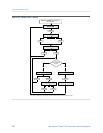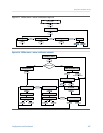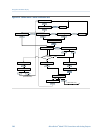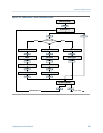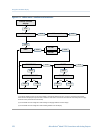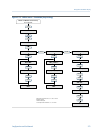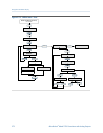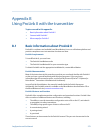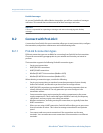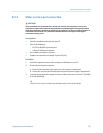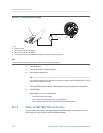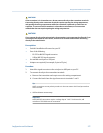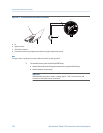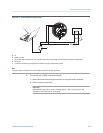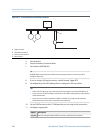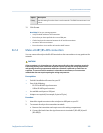
ProLink II messages
As you use ProLink II with a Micro Motion transmitter, you will see a number of messages
and notes. This manual does not document all of these messages and notes.
Important
The user is responsible for responding to messages and notes and complying with all safety
messages.
B.2 Connect with ProLink II
A connection from ProLink II to your transmitter allows you to read process data, configure
the transmitter, and perform maintenance and troubleshooting tasks.
B.2.1 ProLink II connection types
Different connection types are available for connecting from ProLink II to the transmitter.
Choose the connection type appropriate to your network and the tasks you intend to
perform.
The transmitter supports the following ProLink II connection types:
• Service port connections
• HART/Bell 202 connections
• HART/RS-485 connections
• Modbus/RS-485 7-bit connections (Modbus ASCII)
• Modbus/RS-485 8-bit connections (Modbus RTU)
When selecting a connection type, consider the following:
• Service port connections use standard connection parameters that are already
defined in ProLink II, and therefore you do not have to configure them.
• HART/Bell 202 connections use standard HART connection parameters that are
already defined in ProLink II. The only parameter you must configure is the
transmitter address.
• Some connection types require opening the wiring compartment or the power
supply compartment. These connection types should be used only for temporary
connections, and may require extra safety precautions.
• Modbus connections, including service port connections, are typically faster than
HART connections.
• When you are using a HART connection, ProLink II will not allow you to open more
than one window at a time. This is done to manage network traffic and optimize
speed.
• You cannot make concurrent connections if the connections use the same
terminals. You can make concurrent connections if the connections use different
terminals.
Using ProLink II with the transmitter
274 Micro Motion
®
Model 2700 Transmitters with Analog Outputs



